When you’re managing heart disease, taking multiple medications is often unavoidable. But what happens when those pills don’t just work together-they clash? The truth is, combining heart medications can be life-saving… or life-threatening. It’s not about taking too many pills. It’s about which ones you’re mixing, and how your body reacts to them.
Why Heart Medication Mixes Are So Dangerous
Your heart doesn’t just need one drug to stay healthy. It often needs a team: a beta blocker to slow your heart rate, a statin to lower cholesterol, a diuretic to reduce fluid, an anticoagulant to prevent clots, and maybe even an antidepressant if you’re struggling with depression after a heart event. Each of these drugs has a job. But when they’re taken together, they don’t always play nice.A 2019 study from Jimma University Medical Center found that 77.41% of heart patients in their care were taking at least two drugs that could interact. That’s nearly four out of five people. And it’s not just a developing-world problem. In the U.S., if you’re taking four or more prescription medications, your risk of a dangerous drug interaction jumps to 38%. If you’re on seven or more? That number soars to 82%.
This isn’t just about side effects. It’s about your heart failing, your muscles breaking down, or your blood pressure spiking out of control-all because two medications you didn’t realize were risky together were sitting in the same pill organizer.
Unsafe Combinations You Need to Avoid
Grapefruit Juice + Statins
You might think a glass of orange juice is healthy. But grapefruit juice? It’s a silent saboteur for people on statins like atorvastatin, simvastatin, or lovastatin. Grapefruit blocks an enzyme in your gut called CYP3A4, which normally breaks down these cholesterol drugs. Without it, your body absorbs way more than it should.Just one quart of grapefruit juice a day can reduce enzyme activity by 47%. That means your statin levels can spike to toxic levels. Result? Severe muscle pain, kidney damage, or even rhabdomyolysis-a condition where muscle tissue breaks down and floods your bloodstream with toxins. The FDA warns: even occasional grapefruit juice can be dangerous if you’re on these statins.
St. John’s Wort + Beta Blockers, Blood Thinners, or Statins
Natural doesn’t mean safe. St. John’s wort, a popular supplement for mild depression, speeds up how fast your liver clears out heart medications. That means your drugs don’t stay in your system long enough to work. A beta blocker might stop working, letting your heart race. A blood thinner like warfarin could drop in effectiveness, raising your stroke risk. And your statin? It becomes useless.The FDA specifically lists St. John’s wort as a high-risk supplement for heart patients. And it’s not just this one herb-turmeric, garlic supplements, and even high-dose vitamin E can interfere with blood thinners and blood pressure meds.
Black Licorice + Blood Pressure Medications
If you love black licorice candy, you’re putting your heart at risk. Licorice root contains glycyrrhizin, which acts like a hormone that causes your body to hold onto sodium and lose potassium. That raises blood pressure and can cancel out the effects of calcium channel blockers, ACE inhibitors, or diuretics.Even a small amount-like two pieces a day for two weeks-can trigger dangerous spikes in blood pressure and irregular heart rhythms. The FDA and Rush University Medical Center both warn against it. Red licorice? That’s usually safe-it’s flavored, not made from licorice root.
Alcohol + Any Heart Medication
Alcohol doesn’t just affect your liver. It affects your heart’s rhythm, your blood pressure, and how your body processes drugs. Mixing alcohol with beta blockers can cause your blood pressure to drop too low, making you dizzy or faint. With diuretics, it can lead to dangerous dehydration. With antiarrhythmics, it can trigger irregular heartbeats.The National Institute on Alcohol Abuse and Alcoholism says alcohol interacts with over 150 medications. For heart patients, that’s a ticking time bomb. Even one drink a day can be risky if you’re on multiple drugs.
NSAIDs (Ibuprofen, Naproxen) + Blood Pressure Drugs
Painkillers like ibuprofen or naproxen are common, but they’re not harmless for heart patients. These NSAIDs block enzymes that help your kidneys remove fluid. That means your blood pressure can rise-even if you’re taking meds to lower it.They also increase bleeding risk when combined with blood thinners like warfarin or apixaban. A 2022 study in the Journal of the American College of Cardiology found that heart failure patients who took NSAIDs regularly had a 30% higher risk of hospitalization for worsening heart failure.
Antihistamines (Diphenhydramine) + QT-Prolonging Drugs
Many over-the-counter sleep aids and cold medicines contain diphenhydramine (Benadryl). For people on certain heart drugs like amiodarone, sotalol, or dofetilide, this can be deadly. Diphenhydramine can prolong the QT interval-the time your heart takes to recharge between beats. When combined with other QT-prolonging drugs, it can trigger torsades de pointes, a rare but fatal heart rhythm.Safe Practices to Protect Your Heart
Use One Pharmacy for Everything
Pharmacies have software that checks for drug interactions. But if you fill prescriptions at different stores, they can’t see your full list. Using one pharmacy ensures every new prescription gets checked against everything else you’re taking-even OTC meds and supplements.Do a Brown Bag Review
Every six months-or after any hospital visit-take all your medications to your doctor. Not just the pills. Include vitamins, herbal teas, gummies, and topical creams. Many people forget that a patch for pain or a cream for eczema can interact with heart drugs.Know Your High-Risk OTCs
Avoid these without talking to your doctor:- Antacids (like Tums or Maalox)-they can block absorption of digoxin or certain antibiotics
- Decongestants (pseudoephedrine, phenylephrine)-they raise blood pressure and heart rate
- NSAIDs (ibuprofen, naproxen)-they reduce blood pressure meds’ effectiveness
- First-gen antihistamines (diphenhydramine, chlorpheniramine)-they can cause dangerous heart rhythms
Keep an Updated Medication List
Write down every drug you take: name, dose, why you take it, and when. Update it after every doctor’s visit. Carry it in your wallet or save it on your phone. In an emergency, this could save your life.Ask About Alternatives
If you’re on five or more heart meds, ask your doctor: “Is there a simpler way?” Sometimes, switching from multiple drugs to one combination pill reduces interaction risk. Or replacing a statin with a non-statin cholesterol drug might eliminate the grapefruit issue entirely.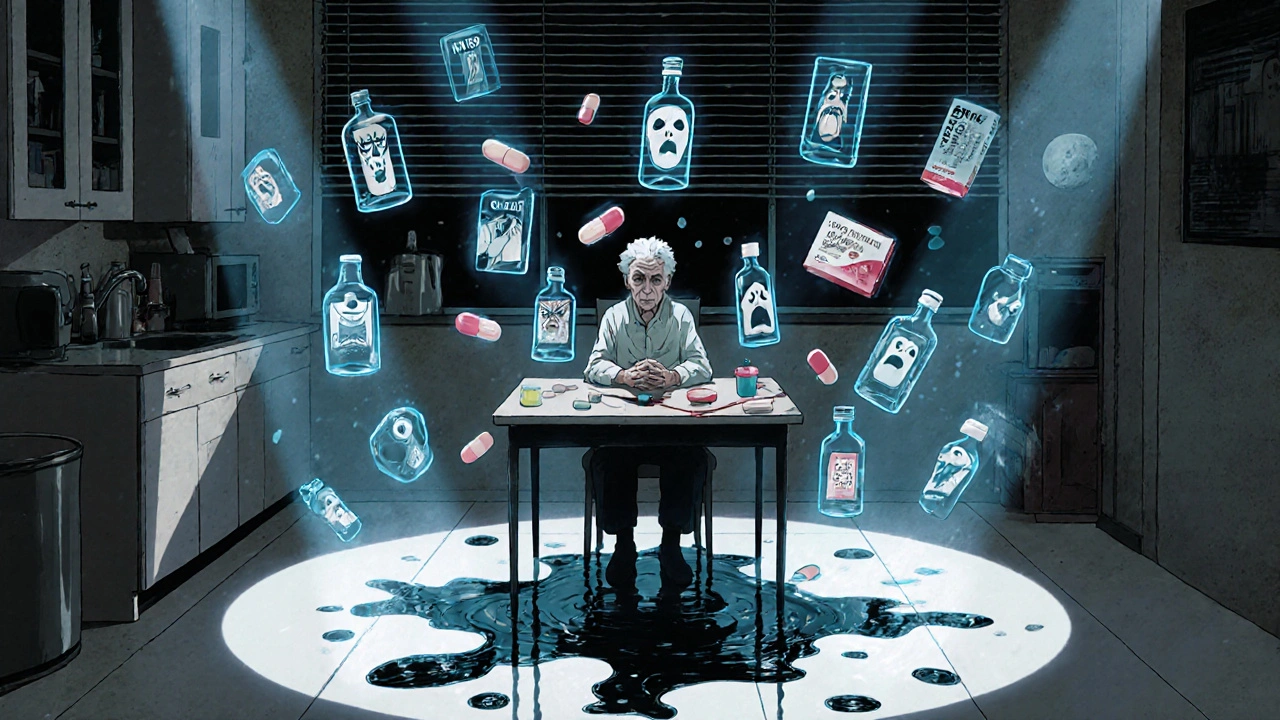
What About Supplements?
People think “natural” means “safe.” It doesn’t. Coenzyme Q10 might help with statin muscle pain, but it can interfere with warfarin. Fish oil can thin your blood too much when combined with anticoagulants. Magnesium can lower blood pressure too far if you’re already on a beta blocker.Always tell your doctor what you’re taking-even if you think it’s harmless. No supplement is too small to mention.
What If You’ve Already Mixed Dangerous Drugs?
If you’ve taken grapefruit juice with your statin, or alcohol with your blood pressure pill, don’t panic. But don’t ignore it either. Watch for:- Unexplained muscle pain or weakness
- Sudden dizziness or fainting
- Swelling in your legs or ankles
- Irregular heartbeat or palpitations
- Unusual bruising or bleeding
If you notice any of these, call your doctor. Don’t wait. Some interactions cause damage quietly-over days or weeks-before symptoms show up.
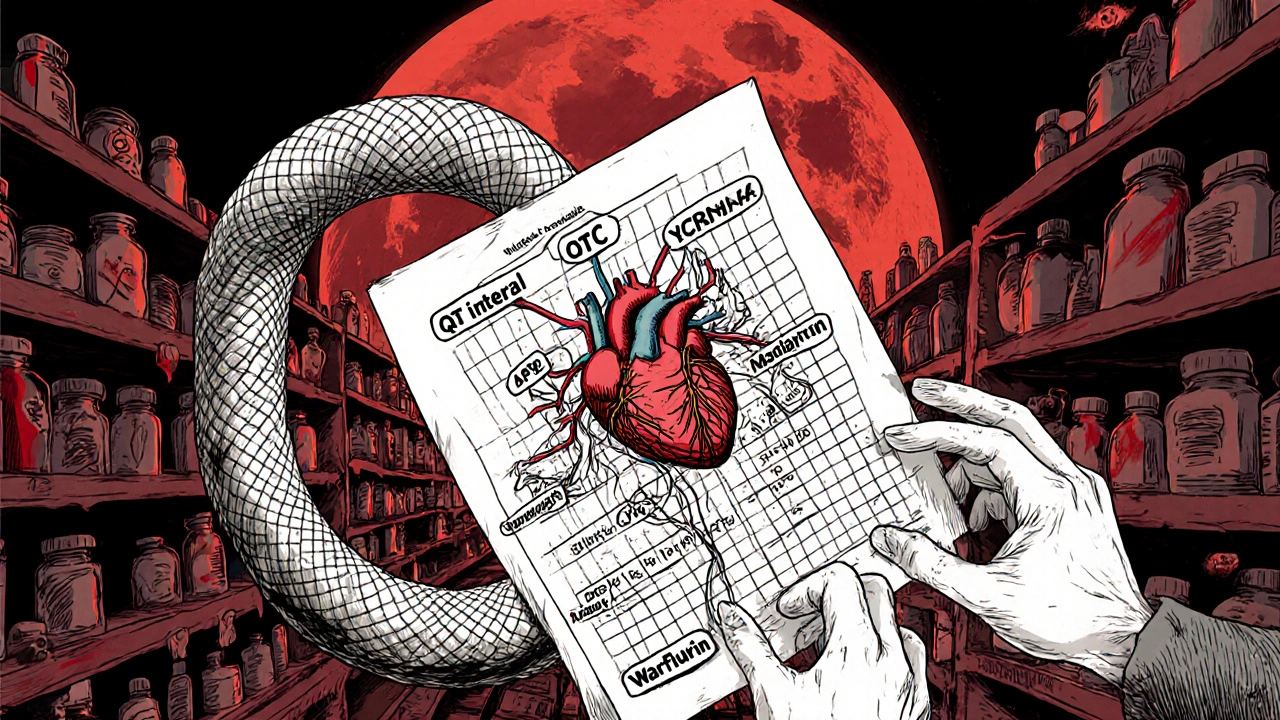
The Bigger Picture: Polypharmacy and Aging
Most heart patients are older adults. And older adults are more likely to take multiple meds for heart disease, diabetes, arthritis, and depression. The National Institute on Aging says 92% of older adults with cancer take five or more medications. The same is true for heart patients.But taking more drugs doesn’t mean better care. It means more risk. Falls, confusion, kidney damage, and even death are linked to too many pills. A 2022 study found that patients who resisted stopping unnecessary meds often did so because they feared their doctor was “giving up on them.” That’s a dangerous myth. Deprescribing isn’t quitting-it’s smart, personalized care.
Technology Isn’t Perfect
Your doctor’s electronic system might warn you about interactions. But studies show these tools miss 23% of dangerous combinations. Why? They don’t know your exact genetics, your liver function, or whether you drank grapefruit juice last week.That’s why your vigilance matters more than any alert. You are the last line of defense.
Can I take ibuprofen if I’m on a blood pressure medication?
It’s risky. Ibuprofen and other NSAIDs can make blood pressure medications like lisinopril or losartan less effective. They can also cause fluid retention, which worsens heart failure. If you need pain relief, talk to your doctor about acetaminophen (Tylenol) instead-but even that isn’t risk-free if you have liver problems. Never take NSAIDs regularly without medical approval.
Is grapefruit juice ever safe with heart meds?
Only if your statin doesn’t interact with it. Atorvastatin, rosuvastatin, and pravastatin have lower interaction risk than simvastatin or lovastatin. But even then, it’s safer to avoid it entirely. The FDA says there’s no safe amount if you’re on a high-risk statin. Switch to orange juice, apple juice, or water instead.
Can I stop a medication if I think it’s causing side effects?
Never stop a heart medication on your own. Suddenly stopping a beta blocker or blood thinner can trigger a heart attack or stroke. If you feel worse after starting a new drug, call your doctor. They may adjust the dose, switch you to a different drug, or check for interactions. Your safety depends on professional guidance, not guesswork.
Do herbal teas interact with heart drugs?
Yes. Hawthorn can lower blood pressure too much when combined with ACE inhibitors. Green tea can reduce the effect of beta blockers. Licorice root tea acts like the candy-raising blood pressure. Even chamomile can thin your blood. Always check with your pharmacist before drinking any herbal tea if you’re on heart medication.
How often should I review my heart medications?
At least once a year, but ideally every six months. After any hospital stay, surgery, or new diagnosis, review everything. Medications change as your health changes. What worked last year might be dangerous now. Keep your list updated and bring it to every appointment.
Final Thought: Your Meds Are a Team-Not a Crowd
Taking heart medications isn’t about quantity. It’s about precision. The goal isn’t to take the most pills-it’s to take the right ones, at the right doses, without dangerous clashes. Your body isn’t a pharmacy shelf. It’s a living system. And when you mix drugs carelessly, it pays the price.Stay informed. Stay organized. And never assume a pill is harmless just because it’s prescribed-or because it’s labeled “natural.” Your heart is worth the extra step of asking, “Is this safe with everything else I’m taking?”
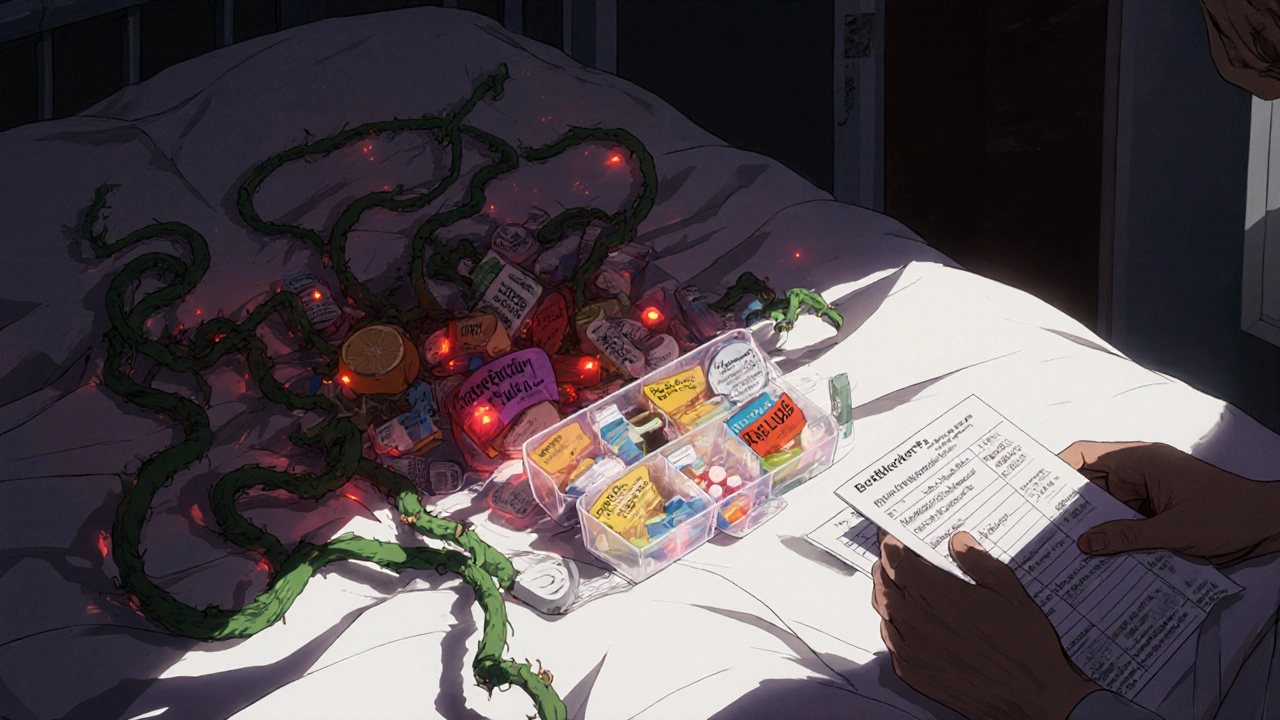
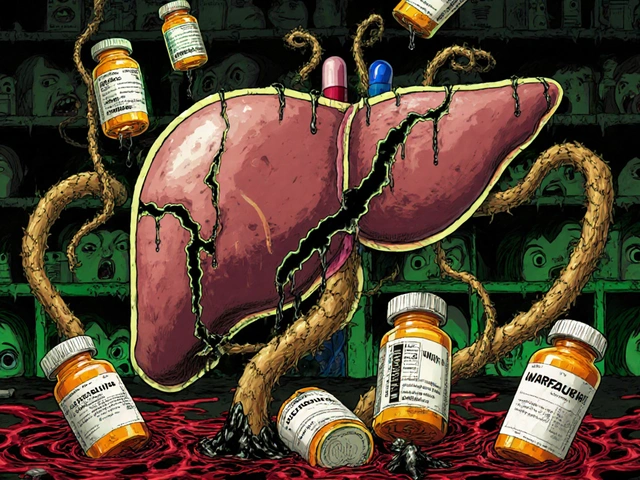


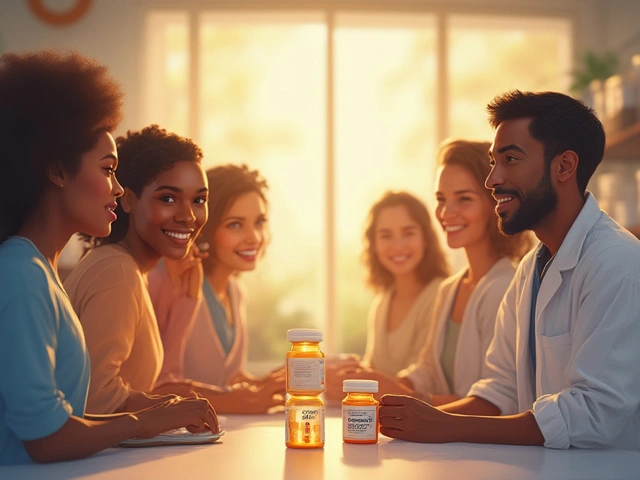
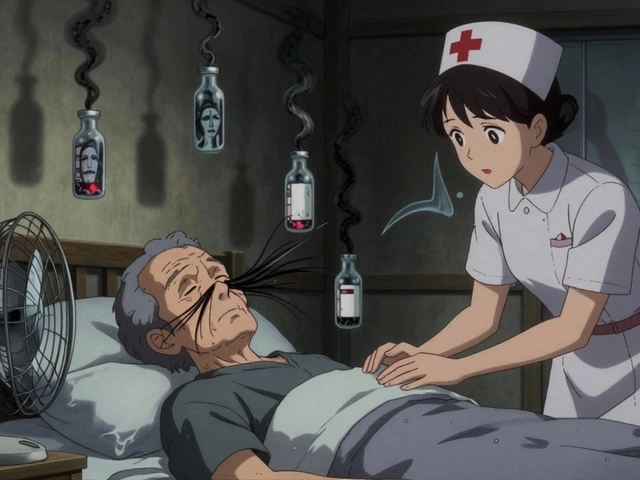
8 Comments
Kristen Magnes
October 31, 2025 AT 20:47 PMJust wanted to say this post saved my life. I was mixing grapefruit juice with my simvastatin and didn’t even realize it was a problem until my muscles started aching like I’d run a marathon in sand. Called my pharmacist-turns out I was one click away from rhabdo. Now I drink apple juice and feel like a new person. You’re not overthinking it-you’re protecting your heart.
Arthur Coles
November 2, 2025 AT 20:39 PMLet me guess-the FDA and Big Pharma are hiding the real truth. Grapefruit juice is a natural diuretic, right? And statins are synthetic toxins designed to keep you dependent. They don’t want you to know that sunlight and fasting fix everything. That 77% stat? Probably cooked. They’re terrified of people realizing you don’t need pills-you need willpower. And don’t get me started on ‘brown bag reviews’-that’s just surveillance dressed as care.
Rachel M. Repass
November 2, 2025 AT 23:07 PMArthur, your conspiracy framing is toxic, but I get why you’re lashing out-polypharmacy feels like a betrayal when your body becomes a pharmacokinetic battlefield. Let’s reframe: it’s not about rejecting medicine-it’s about reclaiming agency. The real villain isn’t the FDA, it’s the fragmented care system that hands you 7 meds from 5 different docs without a single coordination point. We need integrated pharmacotherapy teams, not just ‘one pharmacy’ platitudes. Also, St. John’s wort isn’t ‘natural’-it’s a potent CYP3A4 inducer. Calling it ‘herbal’ is like calling cyanide ‘plant-based.’
And yes, I’ve seen 82-year-olds on 11 meds who’ve been told ‘it’s just aging.’ No. It’s iatrogenic disaster. Deprescribing isn’t quitting-it’s precision medicine. We need AI-driven interaction flags that account for renal function, polypharmacy burden, and even dietary habits-not just static drug pairs. Until then, we’re all playing Russian roulette with our pill organizers.
adam hector
November 4, 2025 AT 14:04 PMY’all are missing the forest for the trees. The real issue isn’t grapefruit or NSAIDs-it’s the entire paradigm of pharmaceutical dependency. You think a pill fixes your heart? Nah. Your heart’s screaming for movement, for silence, for real food-not a cocktail of synthetics masking symptoms. We’ve turned medicine into a cult where the priest is a pharmacist and the sacrament is a blister pack. Wake up. Your heart doesn’t need more chemicals-it needs you to stop treating it like a broken machine.
Also, ‘brown bag reviews’? Cute. But if your doctor doesn’t ask about your emotional state, your sleep, your stress levels… then they’re not treating you. They’re managing inventory. You’re not a patient-you’re a data point with a pulse.
Victoria Arnett
November 5, 2025 AT 16:12 PMI took ibuprofen for my knee and my BP spiked to 180 and I didn’t even connect it until I read this now I’m scared to take anything even tylenol
Kristen Magnes
November 5, 2025 AT 19:27 PMVictoria-you’re not alone. That spike? Classic NSAID rebound. You didn’t do anything wrong. You trusted a common OTC drug. The system failed you, not you. Call your doc tomorrow. Ask for acetaminophen with liver monitoring. And for god’s sake-write down every single thing you take, even the ginger chews. I keep mine in my phone notes labeled ‘Heart Inventory.’ It’s saved me twice. You’re doing better than you think.
Ravi Singhal
November 6, 2025 AT 05:58 AMbro i used to take garlic pills with my blood thinner and felt fine so maybe the warnings are overblown? also my grandma drinks licorice tea every day and she’s 89 and still walks her dog. maybe it’s not all bad? i mean we used to think salt was evil now we know it’s not that bad right? chill
Sharon M Delgado
November 7, 2025 AT 10:20 AMRavi… I love your chill vibe, but please-don’t turn your grandma’s anecdote into medical doctrine. Licorice root isn’t ‘tea’-it’s glycyrrhizin, a mineralocorticoid mimic. Your grandma’s fine… for now. But she’s also walking on a ticking time bomb of hypokalemia and arrhythmias. And garlic? It’s not ‘not that bad’-it’s a potent anticoagulant enhancer. One study showed a 30% increase in INR in patients on warfarin who took garlic supplements. You’re not ‘chilling’-you’re gambling with your ventricular rhythm. Please. Talk to your pharmacist. Not Reddit. Not your cousin. A licensed professional. Your heart deserves more than ‘maybe’.